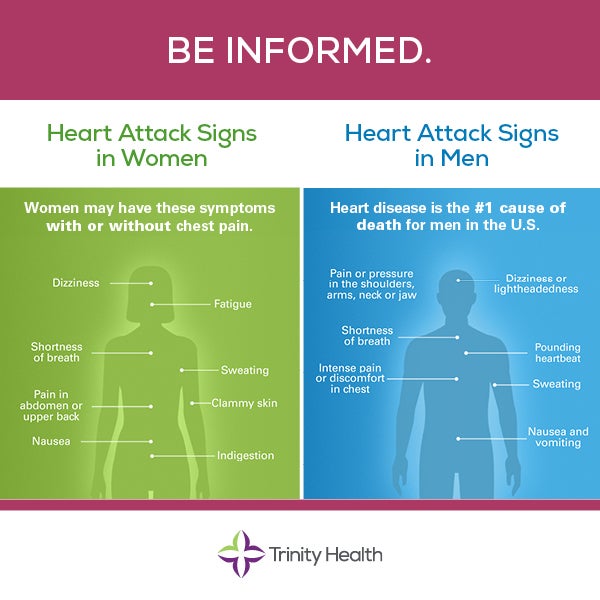5 Interesting Facts About Heart Attacks
February 14, 2023
By: Diane Benson
Categories: Cardiovascular Health, Men's Health, Women's Health
Yes, a heart attack is scary – if you’ve had one, or are close to someone who has, you’re not alone. The good news: many people survive and go on to enjoy productive, healthy lives.
What exactly is a heart attack?
Your heart muscle needs oxygen to survive. A heart attack occurs when the blood flow that brings oxygen to the heart muscle is severely reduced or cut off completely.
“It’s very important to know the symptoms of a heart attack and not to ignore them,” said Thomas Hill, MD, an Interventional Cardiologist with Trinity Health Medical Group in Muskegon and a member of the Cardiovascular Network of West Michigan. “If you think you’re having a heart attack, please call 911 right away and don't drive yourself in,” he continued. “If something were to happen on the way, you have no way to handle that. Ride, don't drive!”
Dr. Hill also noted that heart attack symptoms can vary. “You may, but you may not, experience the classic crushing chest pain. It may be a vague discomfort or heart burn. Or, it may just be in the jaw, back or shoulder and arm,” he said. “It may be associated with shortness of breath, sweating, lightheadedness or nausea and vomiting.”
Here are a few more things you may not know about heart attacks:
- Heart attacks can be silent
One in five heart attacks occurs without the person even knowing they had one. Know the warning signs and catch them early.
- Heart attacks affect women differently
Women may experience different symptoms than men. These include pain in the back, arm, neck, or shoulder; nausea; fatigue; shortness of breath; and vomiting.
- Young women are at higher risk than men
Women under the age of 50 are twice as likely to die of a heart attack as men in the same age group.
- Another reason to hate Mondays
Heart attacks are more likely to occur on Monday mornings than other days of the week. Scientists attribute this to the disruption in our circadian rhythm over the weekend which leads to increased blood pressure and other changes to the nervous system.
- Diet soda raises heart attack risk
If you drink one or more diet sodas a day, your chances of having a heart attack are 43% higher than those who drink regular soda or none at all.
Now — and most importantly — what can you do to prevent a heart attack from happening?
First, it’s important to understand your risk and family history. Then, talk to your doctor and take action to change the things that may put you at an even greater risk.
The American Heart Association has helpful information to get you started and helpful tips to improve your lifestyle and heart health. They also have a Check. Change. Control. Calculator™ tool to learn more about your specific risks for heart disease or stroke and get on a path to a stronger, healthier you.
Learn more about Trinity Health Michigan Cardiovascular Care and the programs and clinics we offer that can help you adopt healthy habits.



